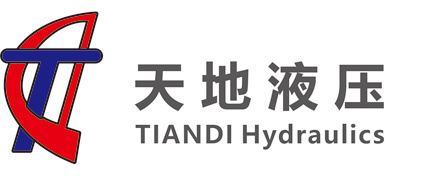GET THE LATEST NEWS FROM THE COMPANY
NEWS CATEGORY
The Essential Role of Hydraulic Flow Restrictor Valves in Industrial Applications
Published:
2025-08-27 18:20
Hydraulic flow restrictor valves are critical components in hydraulic systems, designed to control the flow rate of hydraulic fluid. By regulating this flow, they help ensure that the system operates smoothly and efficiently, preventing potential issues such as cavitation, pressure spikes, and damage to other hydraulic components. The ability to precisely control fluid flow is essential for various industrial applications, ranging from manufacturing machinery to construction equipment.
One of the primary functions of hydraulic flow restrictor valves is to maintain consistent speed and performance in hydraulic actuators, such as cylinders and motors. By restricting the flow of hydraulic fluid, these valves enable the operator to manage the movement speed of machinery effectively. This function is particularly important in applications requiring delicate handling or precise positioning, where sudden movements could lead to operational hazards or material damage.
In addition to controlling speed, hydraulic flow restrictor valves also play a vital role in energy efficiency. By regulating flow, these valves help minimize energy consumption in hydraulic systems. In many instances, excessive flow can lead to wasted energy and increased operational costs. By implementing flow restrictors, industries can achieve more sustainable practices, leading to long-term savings and reduced environmental impact.
Moreover, hydraulic flow restrictor valves serve as protective devices. In a hydraulic system, an unexpected spike in pressure can cause severe damage across various components. Flow restrictors can absorb pressure surges by modulating the flow rate, thereby acting as a safeguard against hydraulic shock. This protective quality not only extends the lifespan of hydraulic components but also enhances the overall reliability of the system.
It's essential to consider the appropriate selection and installation of hydraulic flow restrictor valves to ensure optimal performance. Factors such as the type of fluid, operating pressure, and specific application requirements must be evaluated to select the right size and configuration of the valve. Furthermore, regular maintenance and monitoring of hydraulic systems are crucial for identifying any potential issues early, ensuring that flow restrictor valves remain effective in their role.
In conclusion, hydraulic flow restrictor valves are indispensable in the realm of industrial applications. Their ability to regulate flow, enhance energy efficiency, and protect hydraulic systems makes them a valuable asset in maintaining operational excellence. Understanding their function and ensuring proper selection and maintenance can significantly improve the performance and longevity of hydraulic systems across various industries.
One of the primary functions of hydraulic flow restrictor valves is to maintain consistent speed and performance in hydraulic actuators, such as cylinders and motors. By restricting the flow of hydraulic fluid, these valves enable the operator to manage the movement speed of machinery effectively. This function is particularly important in applications requiring delicate handling or precise positioning, where sudden movements could lead to operational hazards or material damage.
In addition to controlling speed, hydraulic flow restrictor valves also play a vital role in energy efficiency. By regulating flow, these valves help minimize energy consumption in hydraulic systems. In many instances, excessive flow can lead to wasted energy and increased operational costs. By implementing flow restrictors, industries can achieve more sustainable practices, leading to long-term savings and reduced environmental impact.
Moreover, hydraulic flow restrictor valves serve as protective devices. In a hydraulic system, an unexpected spike in pressure can cause severe damage across various components. Flow restrictors can absorb pressure surges by modulating the flow rate, thereby acting as a safeguard against hydraulic shock. This protective quality not only extends the lifespan of hydraulic components but also enhances the overall reliability of the system.
It's essential to consider the appropriate selection and installation of hydraulic flow restrictor valves to ensure optimal performance. Factors such as the type of fluid, operating pressure, and specific application requirements must be evaluated to select the right size and configuration of the valve. Furthermore, regular maintenance and monitoring of hydraulic systems are crucial for identifying any potential issues early, ensuring that flow restrictor valves remain effective in their role.
In conclusion, hydraulic flow restrictor valves are indispensable in the realm of industrial applications. Their ability to regulate flow, enhance energy efficiency, and protect hydraulic systems makes them a valuable asset in maintaining operational excellence. Understanding their function and ensuring proper selection and maintenance can significantly improve the performance and longevity of hydraulic systems across various industries.
hydraulic flow restrictor valve
previous page
previous page
Related news

